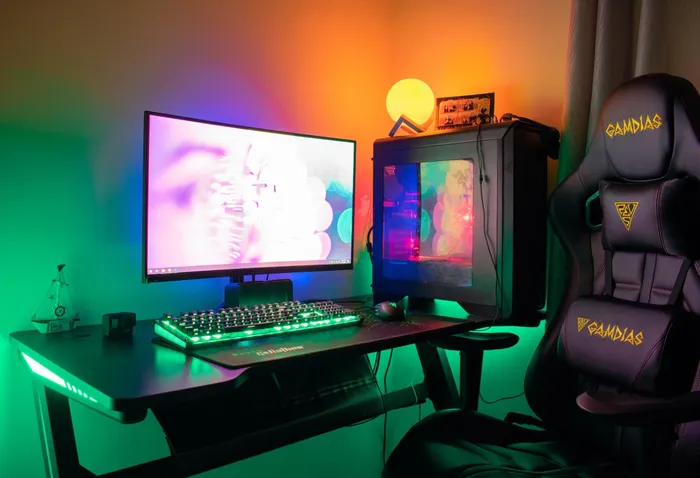How social media and esports are driving a new wave of youth gambling in South Africa

South African teens are unknowingly stepping into the world of gambling through social media platforms.
Image: Pexels
A troubling trend is emerging in South Africa, where an increasing number of teenagers are engaging in online gambling. Many of these young individuals are unaware of their participation in this risky behaviour.
The rise of social media platforms, including YouTube and TikTok, has played a significant role in normalising gambling among youth, as it is often embedded in the content they consume.
This surge is closely linked to the popularity of esports and influencer marketing, which present betting as an entertaining activity rather than a vice.
Research indicates that many children are unable to distinguish between authentic entertainment and advertising, particularly when it comes from influencers they admire.
As gambling becomes more prevalent in the digital landscape, concerns grow over its impact on the younger generation.
This makes them particularly vulnerable to early gambling participation and risky behaviour that can escalate into addiction.
Claire Heckrath, Managing Director of InfoQuest, noted that underage gambling is becoming increasingly prevalent.
She explained that a recent survey revealed young people are being specifically targeted, particularly through sports betting. When they do win, she added, they often reinvest their winnings back into the game, meaning they rarely come out ahead.
Heckrath also pointed out that many young people don’t view their gambling habits as a problem, and even if they do, they often don’t know how to break free from it. Peer pressure from friends further compounds the issue, making it difficult for them to step away from gambling sites.
Despite regulations by South Africa’s Advertising Regulatory Board (ARB) designed to protect minors, enforcement is an uphill battle as gambling companies continue to innovate with increasingly subtle and immersive ad strategies.
The influence of social media
Children’s exposure to gambling-related advertising on YouTube and Instagram is especially concerning.
A study from Comunicar Scientific Journal of Communication and Education revealed that a large proportion of children struggle to recognise these ads, particularly when they are embedded through influencer marketing or product placements.
On YouTube, nearly 70% of children fail to detect advertising in product placement videos - meaning they are absorbing branded content without realising it.
On Instagram, ads within Stories are slightly more recognisable, but overall awareness remains low, particularly among younger users who spend more time on these platforms.
Influencers further complicate the issue. Many embed sponsorship messages within videos watched by millions of children, blurring the line between authentic content and promotion.
“At first, it was just a joke with friends during our gaming sessions,” confesses 16-year-old Bradley. “But then the TikTok influencers I follow started talking about esports betting like it was the coolest thing.” For many teenagers like Bradley, gambling has become a normalised part of digital culture, blurring the boundaries between play and risk.
Regulations and reality: what the rules say
The Advertising Regulatory Board (ARB) has clear guidelines under the Gambling Code Appendix, aligned with the National Gambling Act, which prohibit gambling advertisements aimed at minors.
Key regulations include:
- Gambling ads must not be designed to attract or target minors under 18.
- Ads cannot feature people or characters who are, or appear to be, under 18 engaging in gambling.
- Gambling adverts are banned in media directed at minors, or near schools, youth centres, technikons, or universities.
- All gambling ads must include responsible gambling warnings, featuring the National Responsible Gambling Programme’s contact details and a clear “18+” message.
However, these safeguards are often ignored by the digital nature of advertising, where influencer content and algorithmic promotion easily sidestep traditional monitoring.
Teaching teens to take risks wisely
To tackle the issue at its roots, the South African Responsible Gambling Foundation (SARGF) has launched the Taking Risks Wisely Schools Programme, aimed at educating learners about the dangers of illegal and underage gambling.
According to SARGF Executive Director Sibongile Simelane-Quntana, many young people are introduced to gambling informally through games such as Zwepe (a coin-spinning betting game), dice, cards, and even friendly wagers on board games like Ludo.
“There are various factors that contribute to underage gambling, which differ depending on the community,” said Simelane-Quntana. “Peer pressure, access to illegal gambling, exposure to gambling culture, and the normalisation of risky behaviour all play a role in drawing young people into gambling activities.”
In addition to this, SARGF’s Minor Intervention Programme provides free counselling services for minors affected by gambling, with parental or guardian consent. “This programme focuses on offering free support to young people who may have been directly impacted by illegal underage gambling or the harmful effects of problem gambling within their homes,” Simelane-Quntana explained.
For help to quit gambling, call the The South African Responsible Gambling Foundation on its toll free counselling line, 0800 006 008 Or WhatsApp/SMS HELP To 076 675 0710 or email to helpline@responsiblegambling.org.za
Related Topics: